
This meeting allowed to follow the various topics covered by the Codex Alimentarius, but also to consolidate relations with the Codex Alimentarius secretariat, and in particular with Tom Heilland, secretary of the Codex Alimentarius Commission.
In parallel of the session, the President and the OIV Scientific coordinator have discussed with different national delegation members or non-members of the OIV regarding different issues.
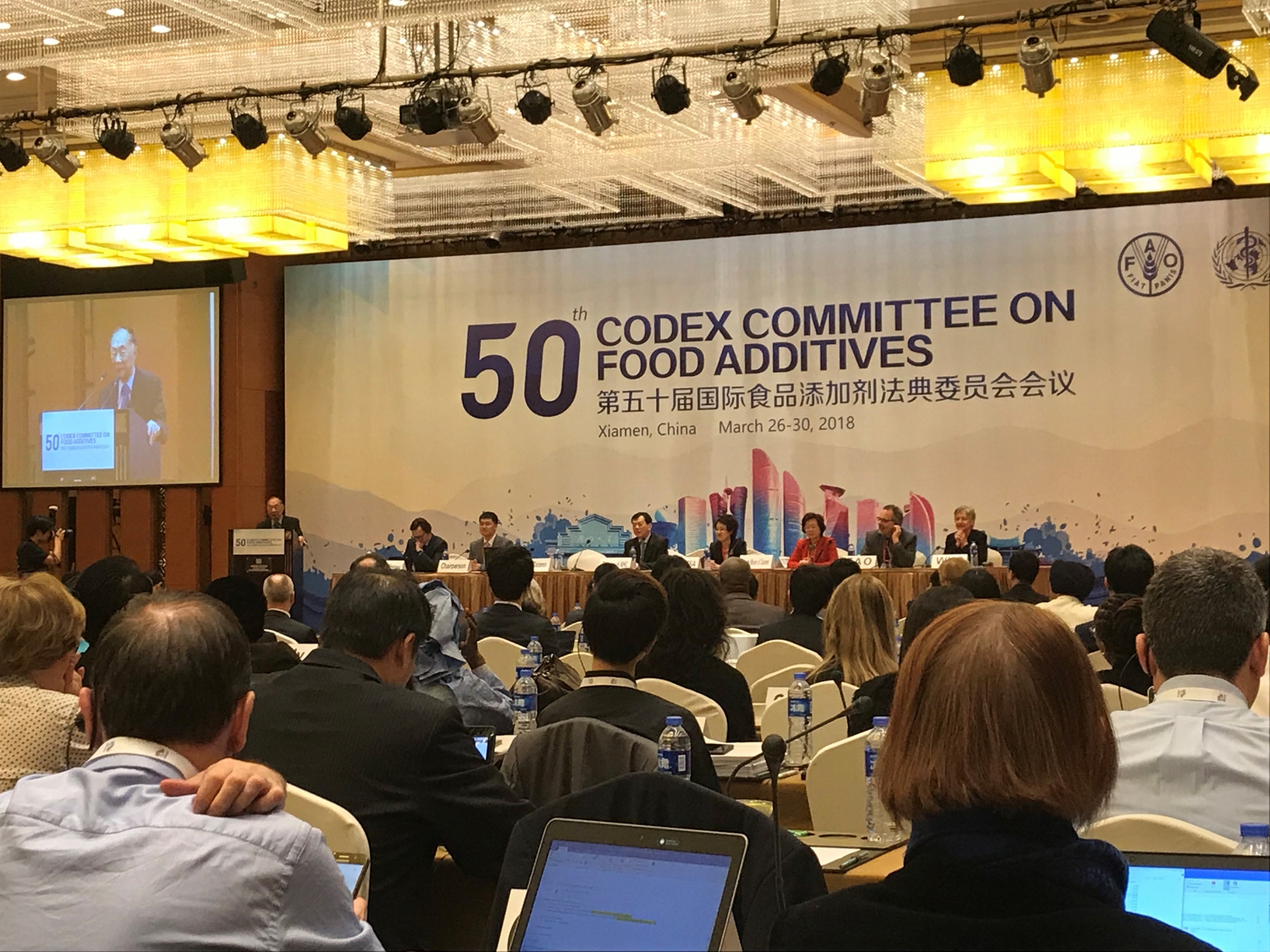
Among the technical issues, the CCFA has endorsed different decisions in particular regarding the specifications of microcrystalline cellulose. In addition the Joint Expert Committee of Food Additive (JECFA) has reported its works on tentative specifications on oenological tannins, metatartaric acid and yeats mannoproteins. In addition a safety assessment of potassium polyaspartate has been included in the work programme of the JECFA.
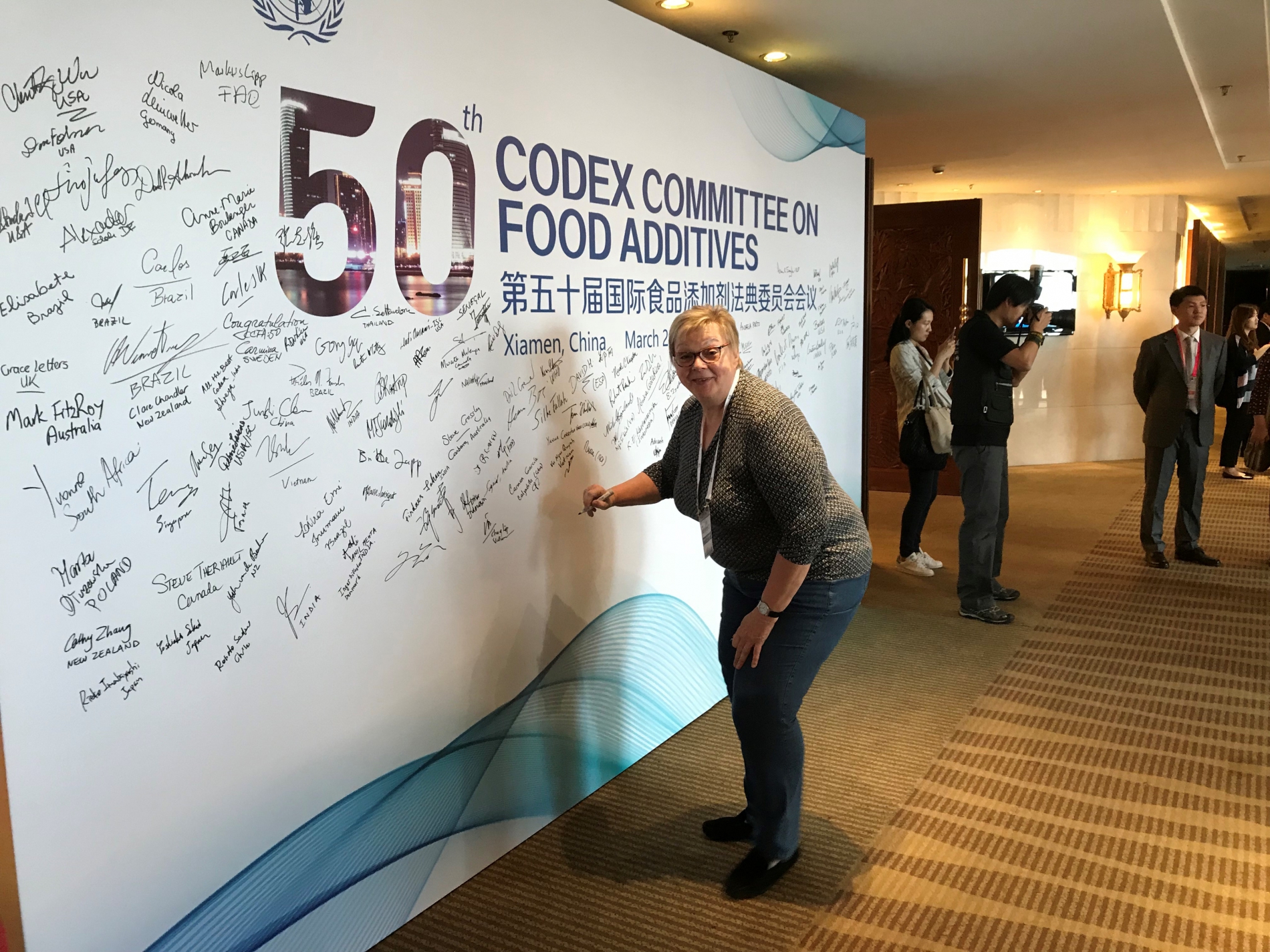
For more technical information, please consult the enclosed document
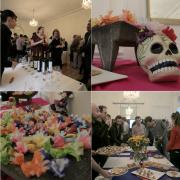
Mexico, which joined the OIV in 2016, embarked upon a bill in 2017 for the development of its national vitivinicultural industry, which is expected to be adopted several weeks from now. It was at the time of introduction of this bill and during the OIV Director General's visit to the Mexican Senate that the Undersecretary of Agriculture announced his intention for his country to organise a presentation of Mexican wine in Paris.
First Mexican wine tasting at the OIV headquarters
It was with great pleasure that Jean-Marie Aurand welcomed this first tasting of Mexican wines at the OIV headquarters, highlighting the strong and rapid growth of the sector and the synergy between the Mexican professional and public sectors. Mr Guillermo Garza García, Director of PROMÉXICO, representing H.E. Mr Juan Manuel Gómez Robledo, Mexican Ambassador to France, was proud to be able to present, with the Mexican Wine Council, a selection representative of the high quality of Mexican wines.
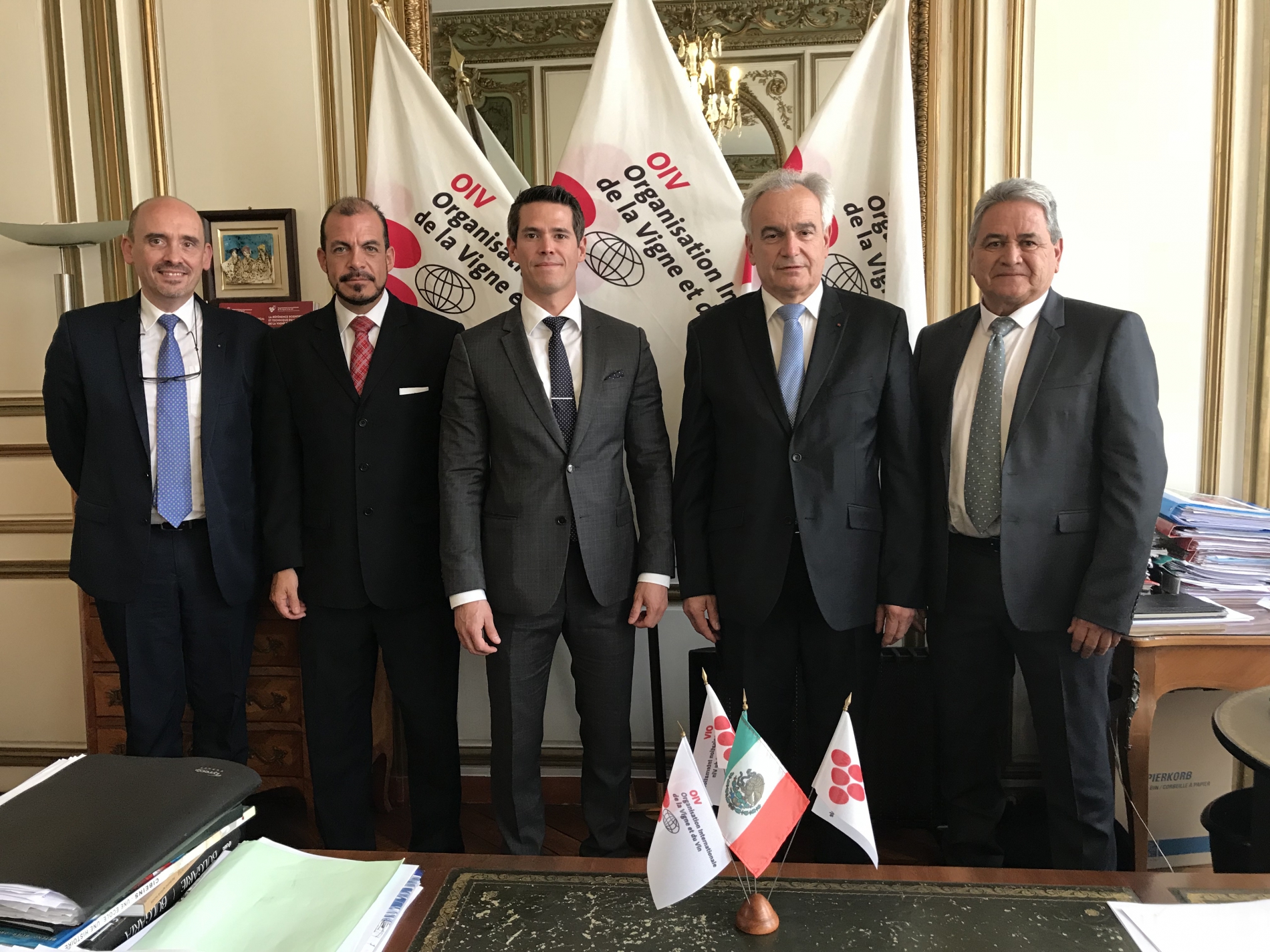
A production of 260,000 tonnes of table grapes per year
With a production of 260,000 tonnes of table grapes per year, an increase of 25% since the year 2000 with more than 60% exported, Mexico is becoming a significant player on the world market. Its production is well rewarded as it arrives on the market out of season (May to July). As for raisins, since 2000, production has increased by 225% to reach 14,000 tonnes in 2015. Driven by strong domestic demand (an annual increase in consumption of 12% for the last 10 years), wine production has experienced remarkable growth. A large number of wine companies established in 11 Mexican states produce nearly 200,000 hectolitres of a wide variety of high-quality wine every year.
Three Mexican regions represented
Mr Gabriel Padilla, Director of the Mexican Wine Council, presented historical, geographical and economic data on the sector, and this data was illustrated by oenologists from wineries in the regions of Lower California (Monte Xanic), Coahuila (Casa Madero) and Aguascalientes (Vinícola Santa Elena). The wines were presented to 100 or so professionals, amongst different wine-tapas pairings illustrating the perfect marriage between wines of character and recognised gastronomy.
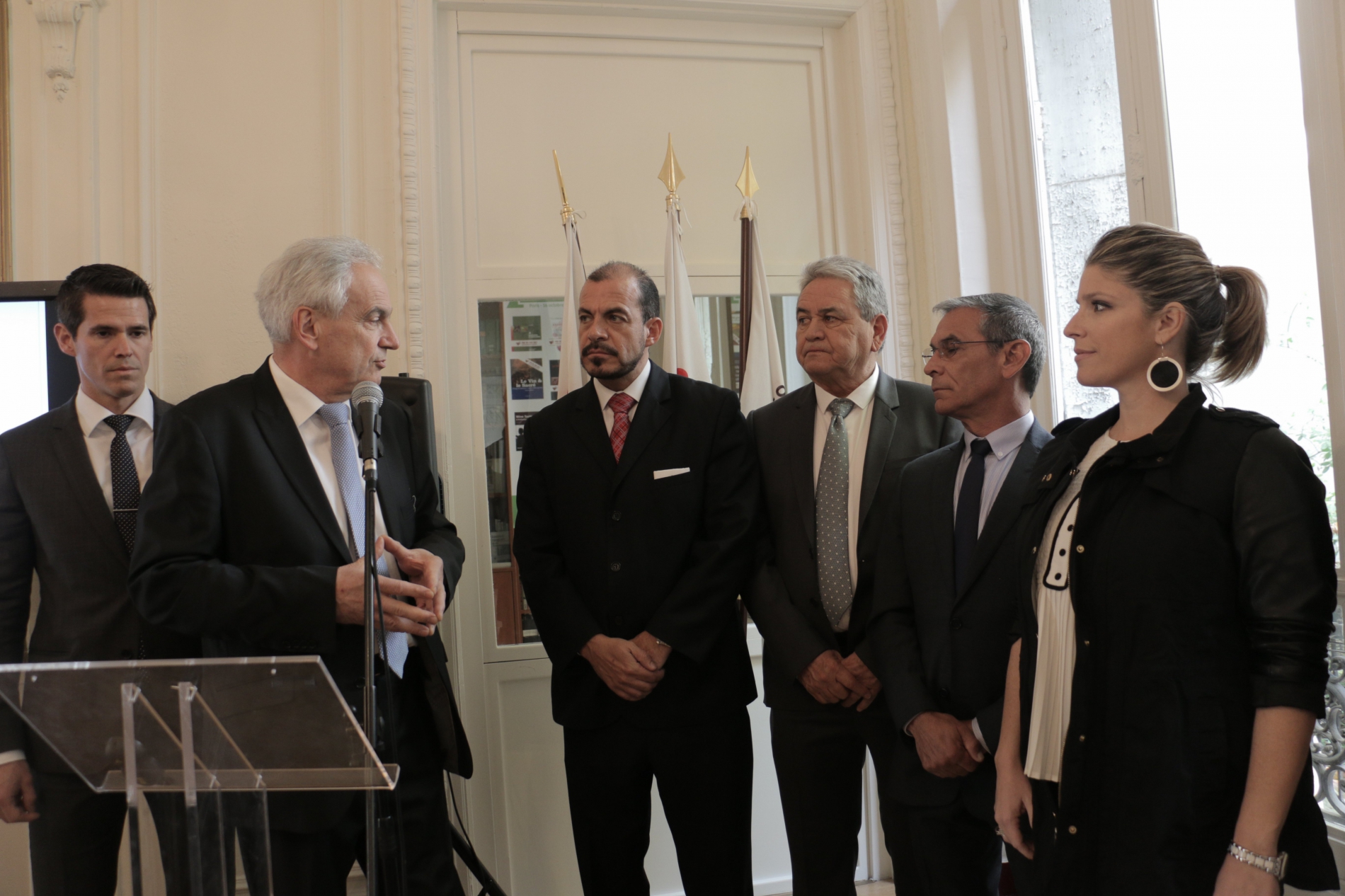
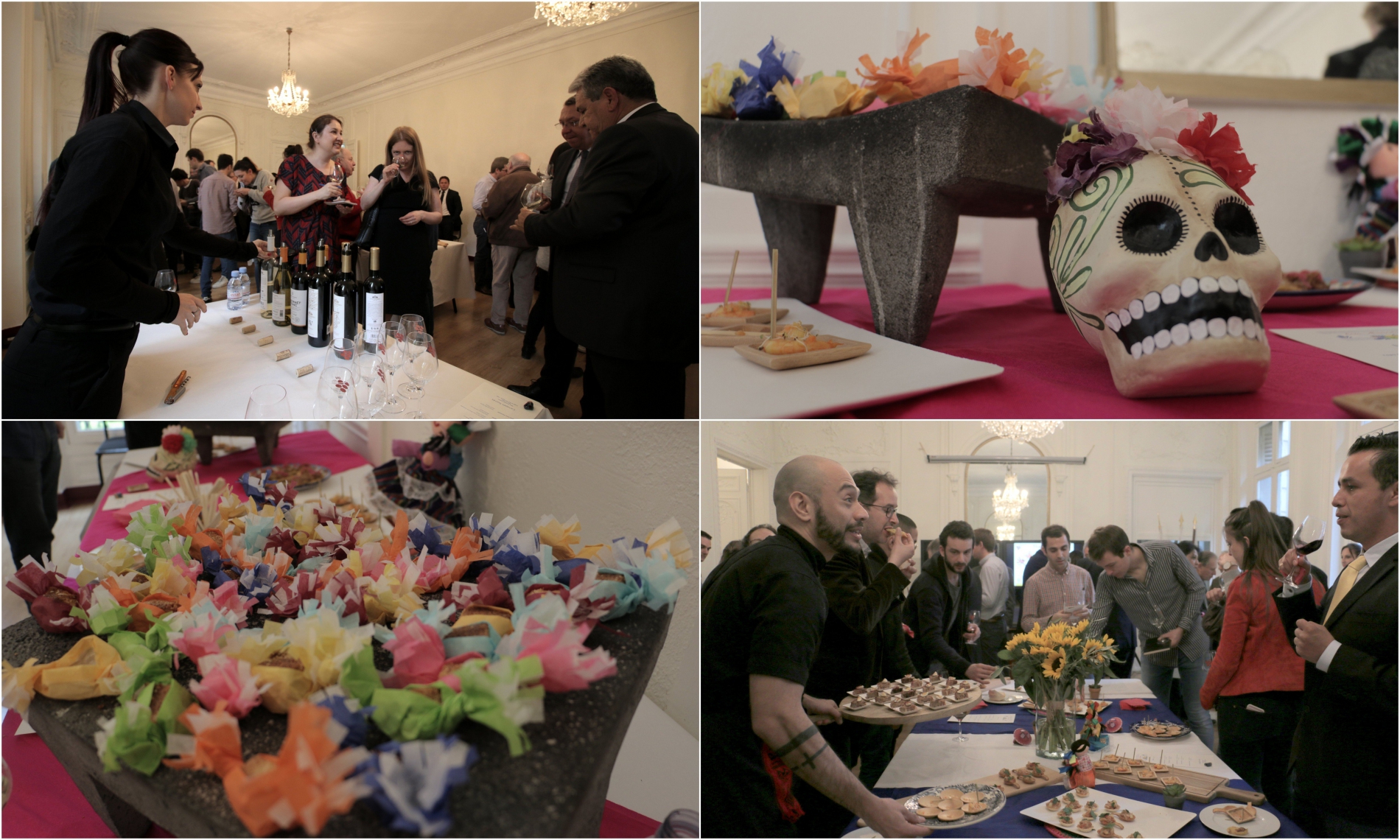
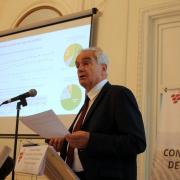
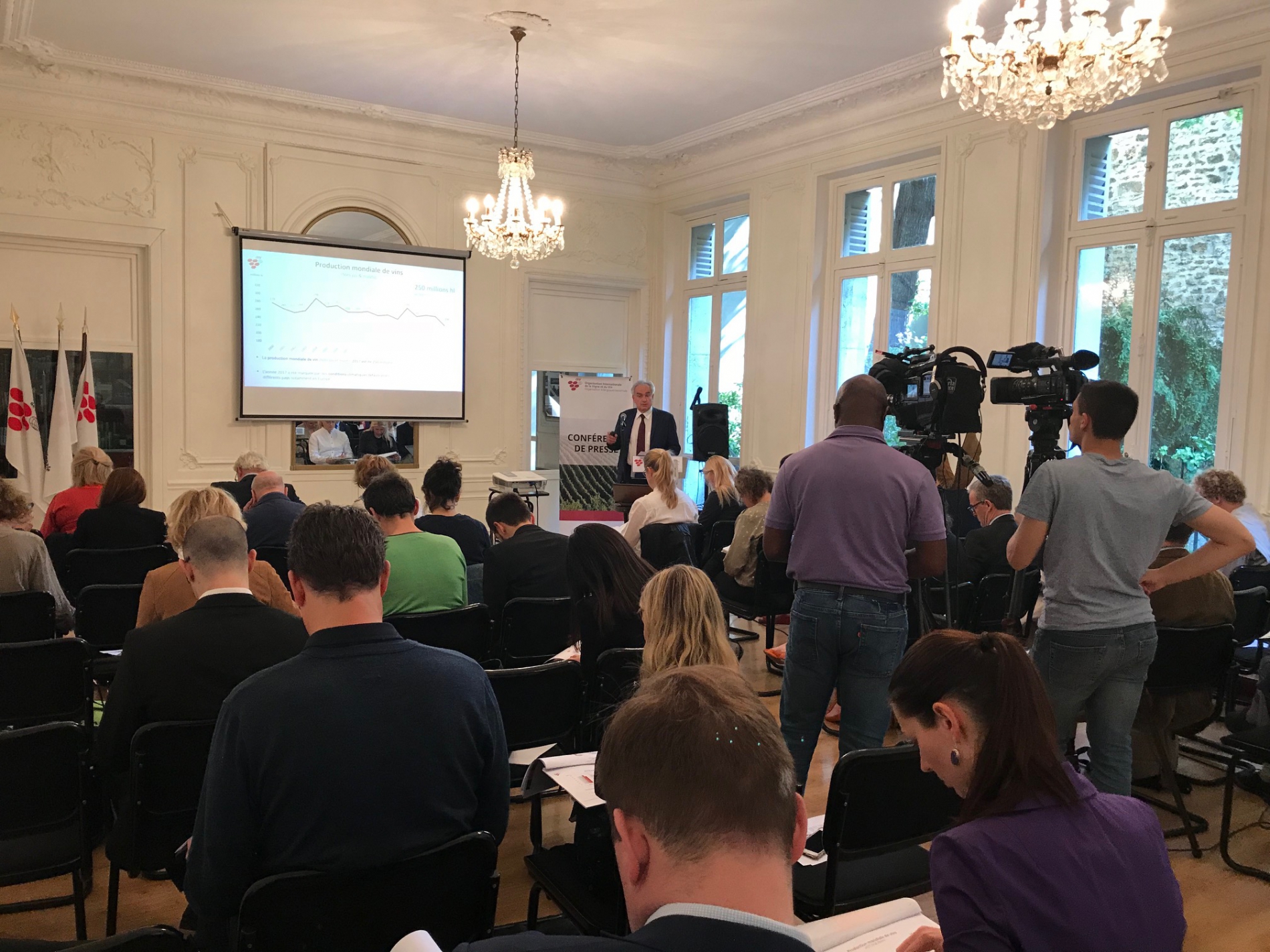
The Director General of the OIV, Jean-Marie Aurand, presented information on the potential wine production, assessment of the harvest, and state of the market and international trade in 2017 at the Organisation's headquarters in Paris on 24 April.
- With 7.6 mha in 2017, the size of the global area under vines appears to have stabilised.
- Wine production was at 250 mhl in 2017. This was a historically low production year, with a decline of 8.6% compared with the previous year, explained in particular by unfavourable climate conditions within the EU (-14.6% compared with 2016).
- A total of 243 mhl of wines were consumed in 2017. Consumption had almost stabilised following the 2008 economic crisis, with a positive trend over the past 3 years.
- World wine trade: there was a very positive balance, both in terms of volume (108 mhl, +3.4% compared with 2016) and value (30bn EUR, +4.8% compared with 2016).
Global State of Conditions Report
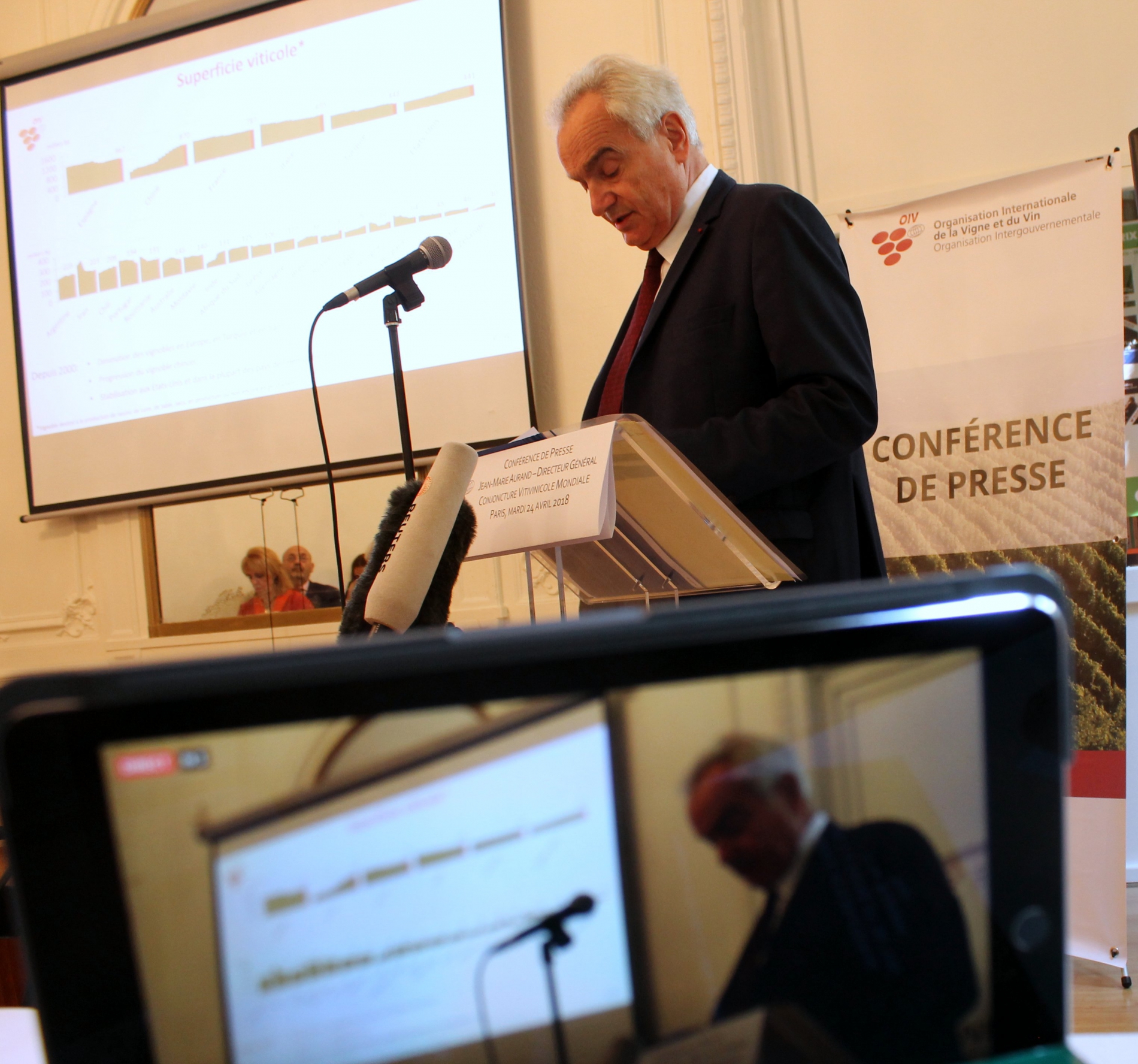
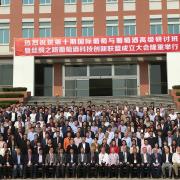
Organised by the College of Enology of Northwest A&F University with the support of the China Alcoholic Drinks Association (CADA), the Chinese National Research Institute of Food and Fermentation Industries and local authorities, this event brought together over 250 participants: producers, industry representatives, academics and experts.
Several Chinese and also foreign speakers gave presentations in different workshops focusing on the following themes: viticultural techniques, wine and terroir, the construction of wine brands, wine and the internet.
Placed under the patronage of the OIV, this Symposium was an opportunity for Jean-Marie Aurand to give a presentation of the OIV and its missions together with a panorama of the state of the global vitivinicultural sector, highlighting the major issues for the future.
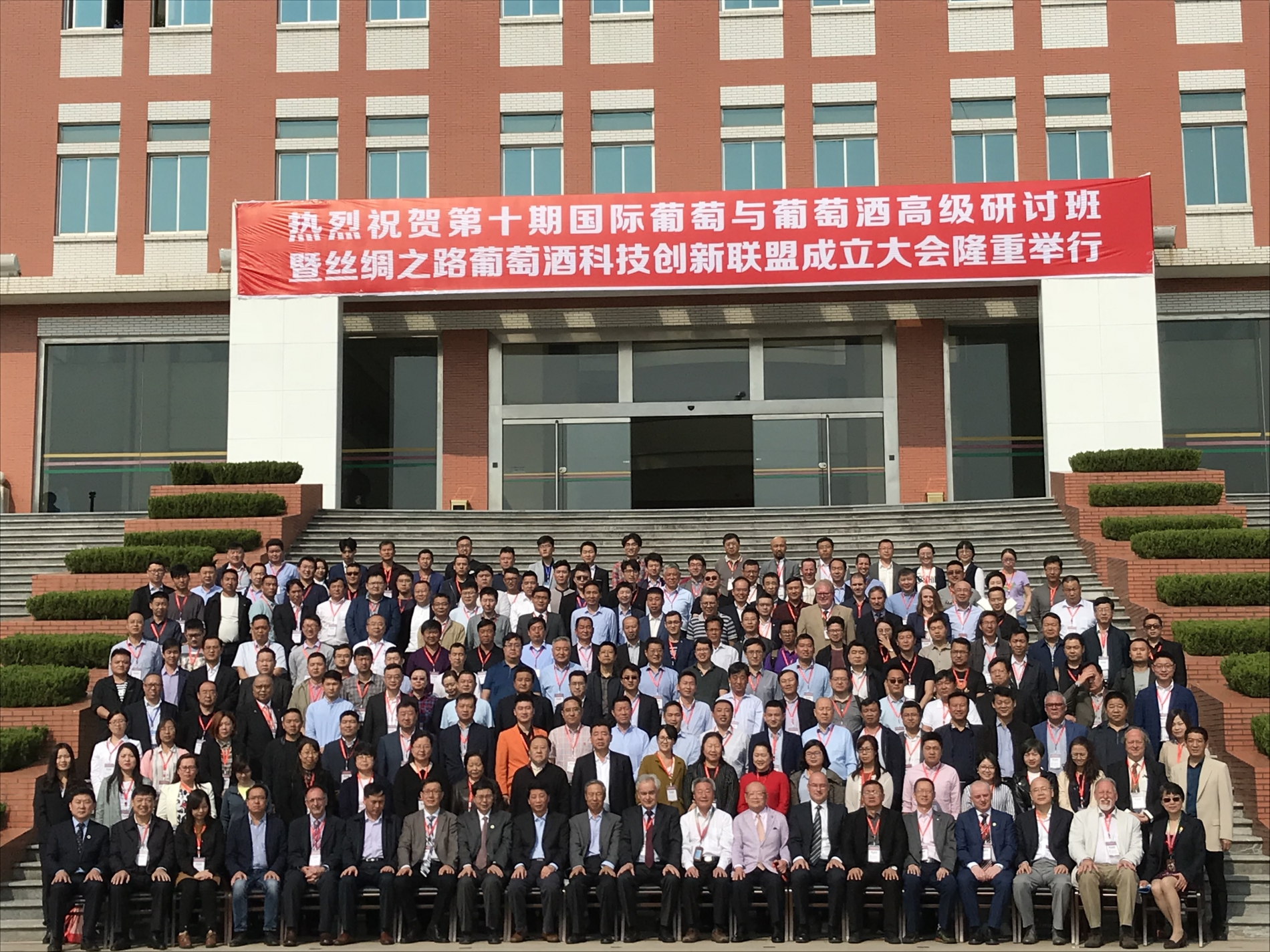
The Director General of the OIV also called for the full accession of China to the OIV at a time when Chinese viticulture is experiencing unprecedented growth, both with regard to table grape production (the top producing country) and wine production and consumption (8th in the world for production and 5th for consumption).
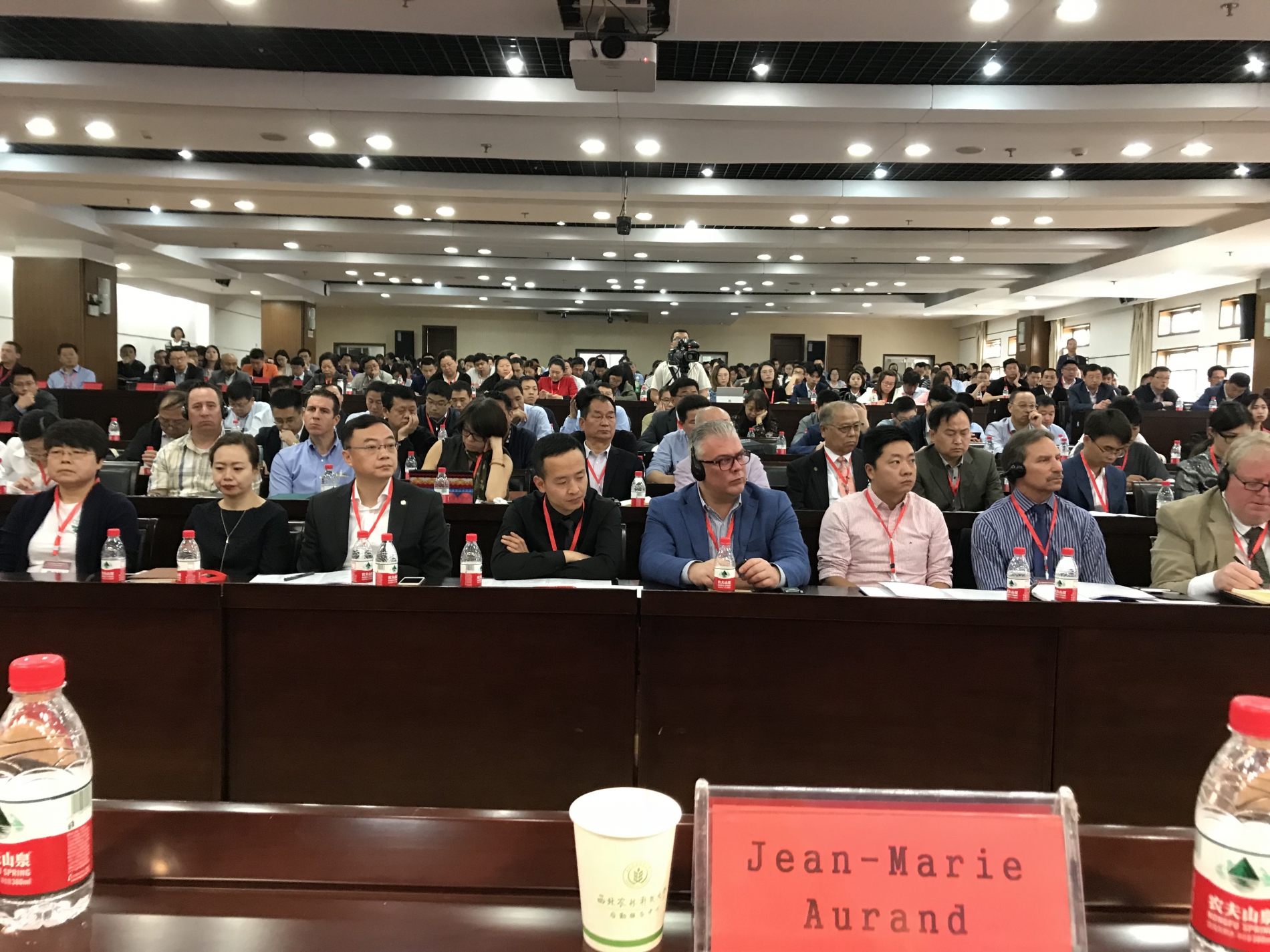
Finally, a part of the Symposium was dedicated to a forum on the transposition to the wine sector of the initiative undertaken in connection with the silk route.
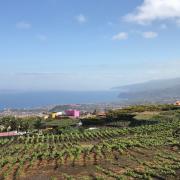
Organised by the Center for Research, Study, Safeguarding, Coordination and Valorisation of Mountain Viticulture (CERVIM), with the cooperation of the Government of the Canary Islands and under the high patronage of the OIV, this Congress brought together the representatives of around 15 countries, focusing on the theme of ‘Heroic viticulture: from grape to wine through sustainability and quality'.
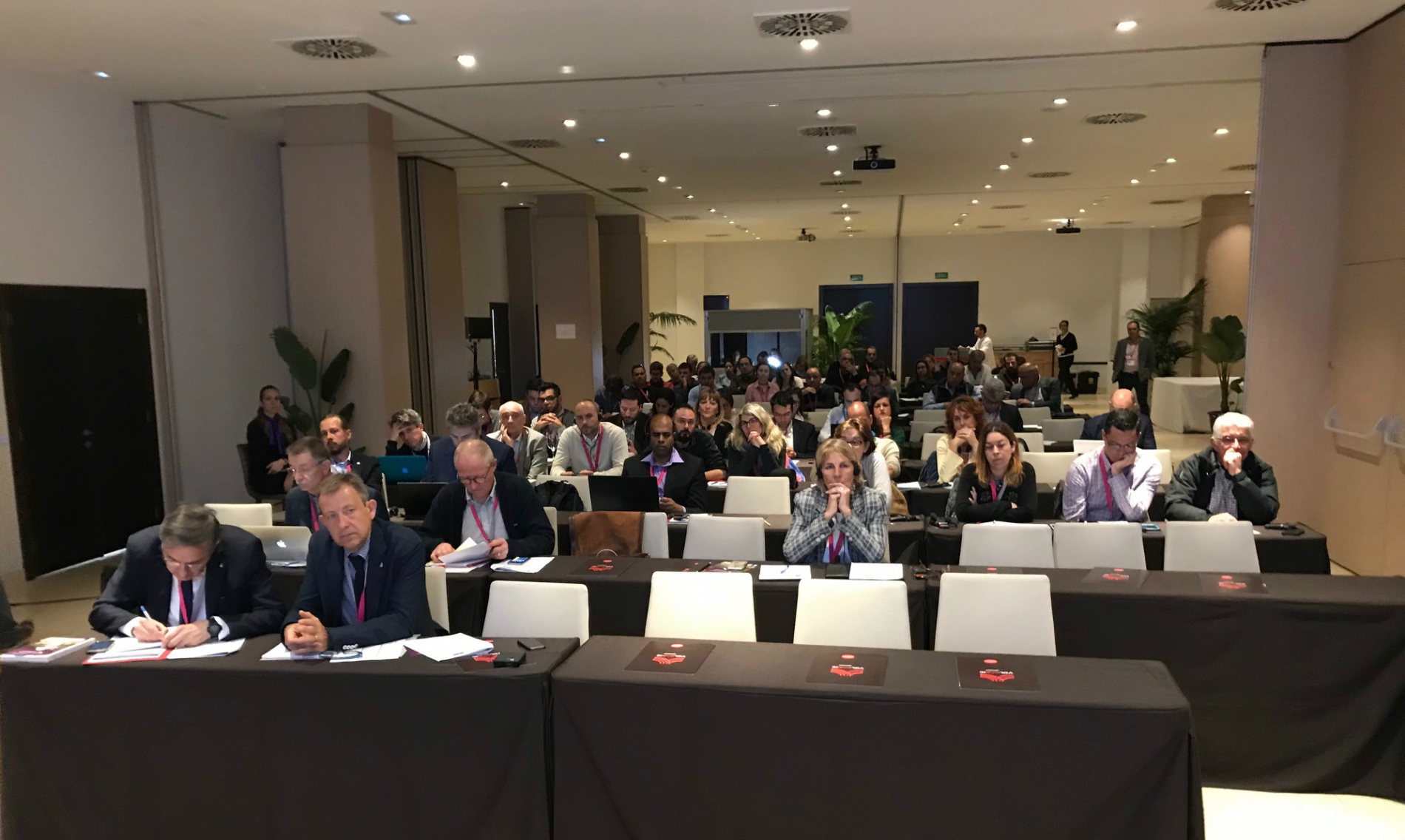
The Congress comprised four technical sessions:
- mechanization and precision viticulture for steep-slope vineyards,
- examples of heroic viticulture and their sustainability and identitary landscape elements,
- oenological practices for heroic viticulture valorisation,
- the biodiversity value of wine in heroic viticulture.
Around 20 experts gave an oral presentation at the same time as 30 or so posters were displayed.
An important role in land-use planning
During a round table dedicated to perspectives of mountain and steep-slope viticulture, the Director General of the OIV highlighted the significant role of this type of viticulture with regard to land-use planning. These vineyards not only maintain economic activity in difficult regions, but also shape landscapes in an exceptional manner.
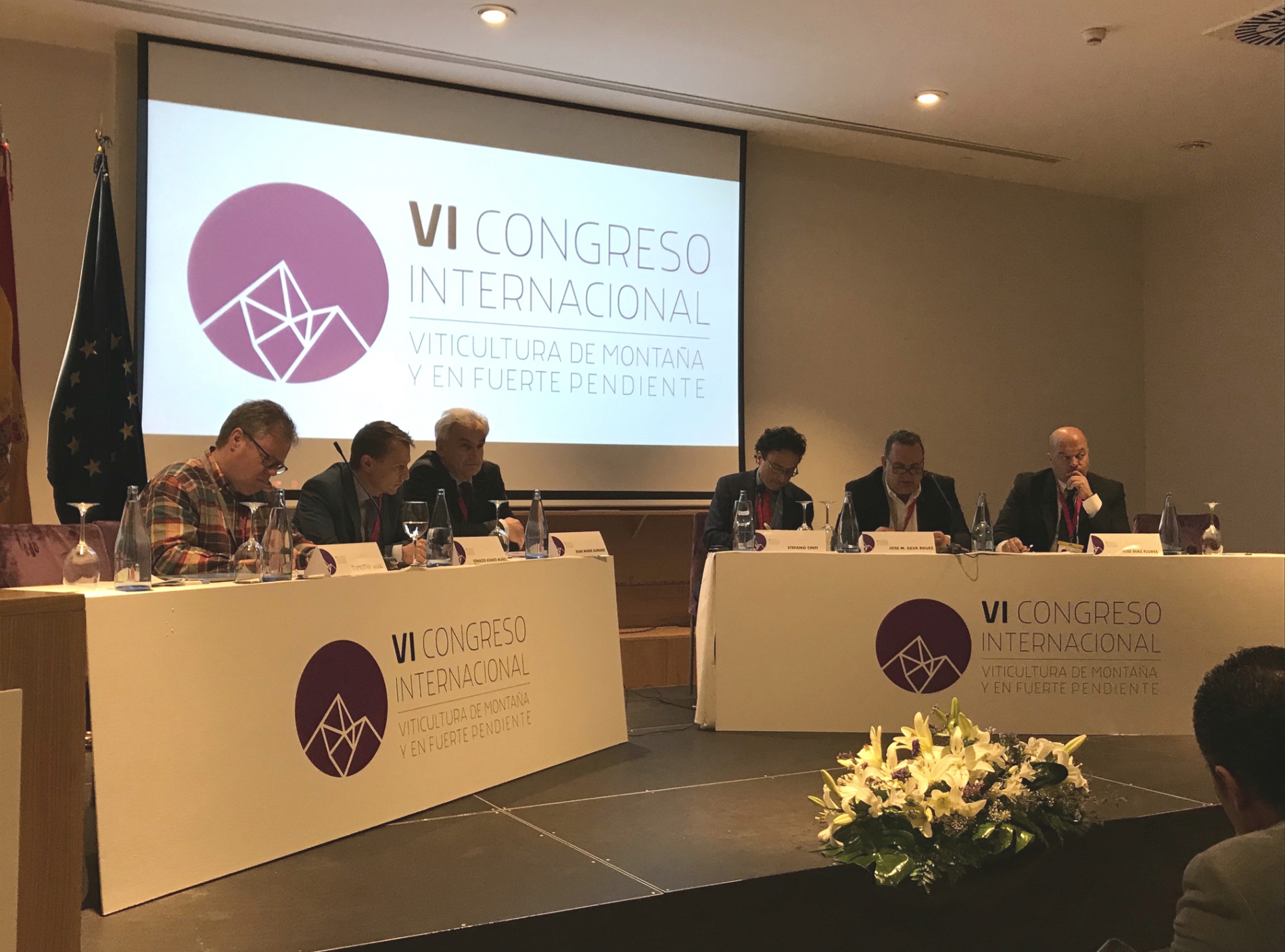
‘Heroic viticulture’ has transformed handicaps (steep slopes, climate, etc.) into attributes thanks to the enhanced value it provides for native vineyards that produce wines with great diversity and very strong typicity.
The different speakers coincided in advocating the need to support the development of this type of viticulture through suitable public policies.
CERVIM: defence and promotion of mountain viticulture on the international scale
Jean-Marie Aurand praised the role played by the CERVIM in the defence and promotion of mountain, steep-slope and small-island viticulture on the international scale. In this respect, he praised the commitment of President Roberto Gaudio, as the ‘spokesperson’ for mountain and steep-slope viticulture, to protection and development.
At the end of the Congress, several technical visits were organised to explore the vineyards on the island of Tenerife, which comprises no less than 5 protected designations of origin spread over more than 8000 hectares.
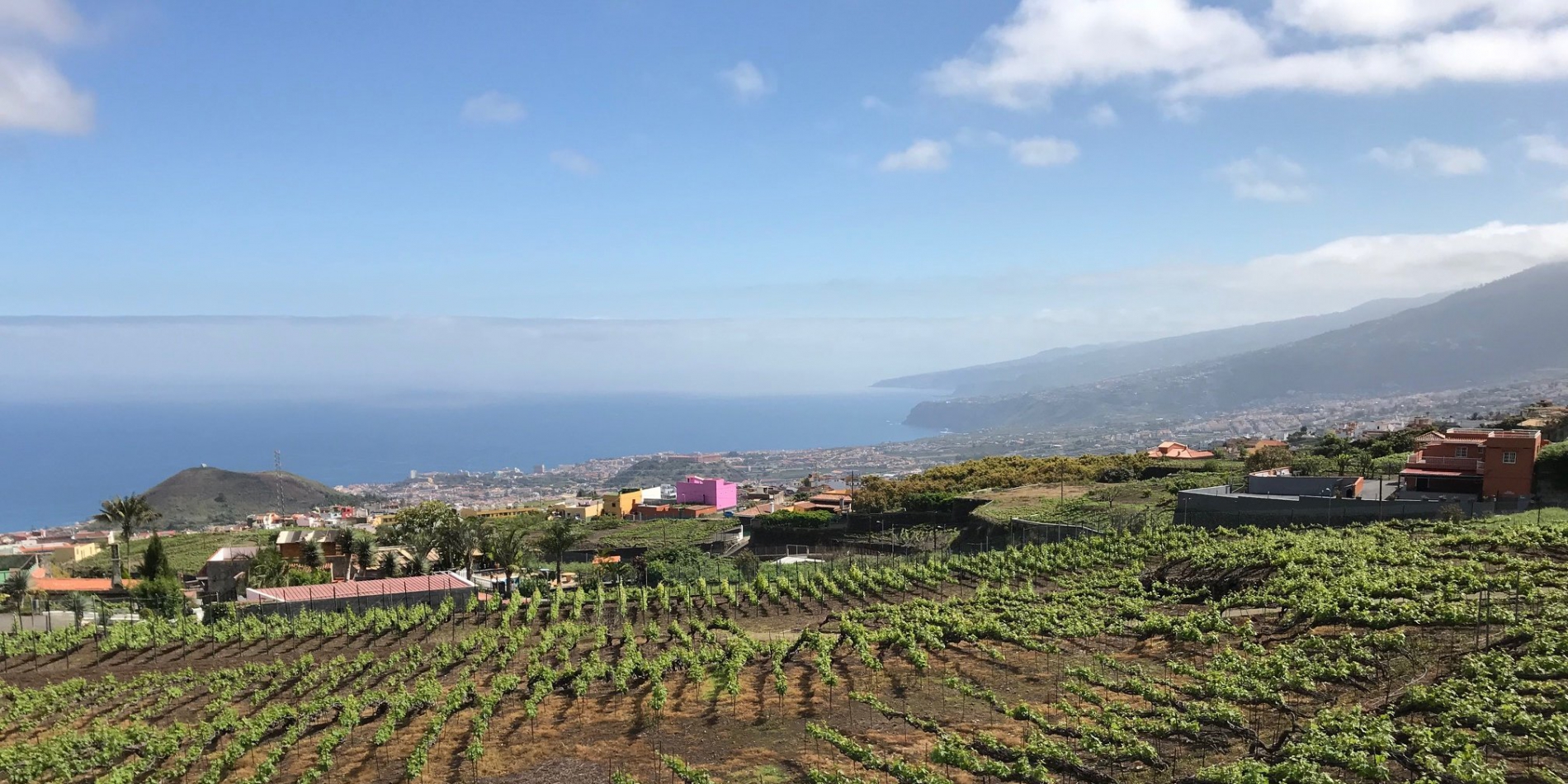
The CERVIM is an international organisation set up for the specific purpose of promoting and protecting heroic viticulture.
The Technical and Scientific Committee of the Center has defined the criteria that define the type of viticulture it represents:
- slopes of over 30%,
- altitude higher than 500 metres above sea level,
- viticultural systems on terraces and embankments,
- viticulture on small islands.
The Center, whose headquarters are in Aosta Valley (Italy), has always worked to support mountain, steep-slope and small-island viticulture. It pursues its objective by organising congresses and participating in initiatives of the sector, both at the national and international levels.